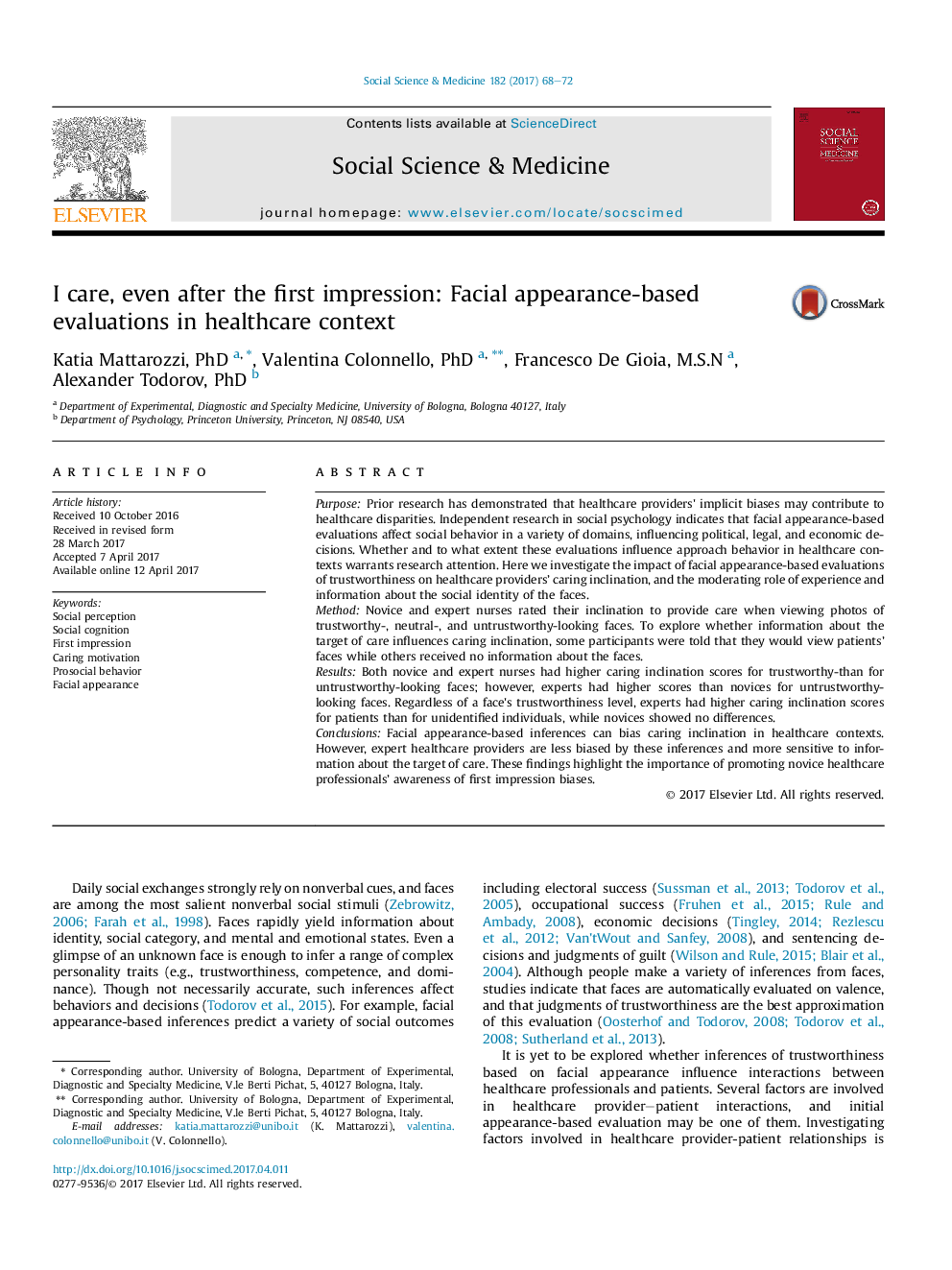| کد مقاله | کد نشریه | سال انتشار | مقاله انگلیسی | نسخه تمام متن |
|---|---|---|---|---|
| 5046532 | 1475987 | 2017 | 5 صفحه PDF | دانلود رایگان |
- Appearance-based inferences may influence healthcare providers' caring inclination.
- Caring inclination is lower for untrustworthy-than for trustworthy-looking faces.
- Expert healthcare providers are less biased by facial appearance than novices.
- Expert healthcare providers are sensitive to information about the target of care.
PurposePrior research has demonstrated that healthcare providers' implicit biases may contribute to healthcare disparities. Independent research in social psychology indicates that facial appearance-based evaluations affect social behavior in a variety of domains, influencing political, legal, and economic decisions. Whether and to what extent these evaluations influence approach behavior in healthcare contexts warrants research attention. Here we investigate the impact of facial appearance-based evaluations of trustworthiness on healthcare providers' caring inclination, and the moderating role of experience and information about the social identity of the faces.MethodNovice and expert nurses rated their inclination to provide care when viewing photos of trustworthy-, neutral-, and untrustworthy-looking faces. To explore whether information about the target of care influences caring inclination, some participants were told that they would view patients' faces while others received no information about the faces.ResultsBoth novice and expert nurses had higher caring inclination scores for trustworthy-than for untrustworthy-looking faces; however, experts had higher scores than novices for untrustworthy-looking faces. Regardless of a face's trustworthiness level, experts had higher caring inclination scores for patients than for unidentified individuals, while novices showed no differences.ConclusionsFacial appearance-based inferences can bias caring inclination in healthcare contexts. However, expert healthcare providers are less biased by these inferences and more sensitive to information about the target of care. These findings highlight the importance of promoting novice healthcare professionals' awareness of first impression biases.
Journal: Social Science & Medicine - Volume 182, June 2017, Pages 68-72
